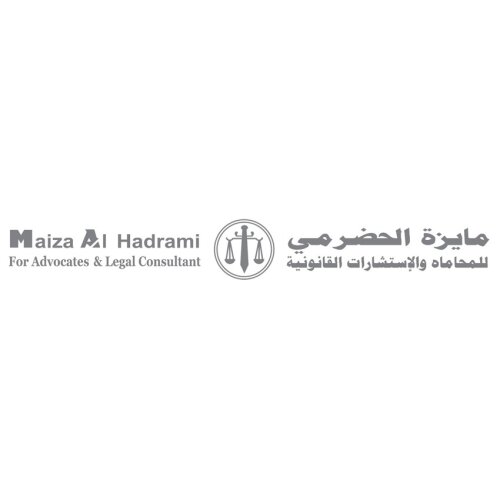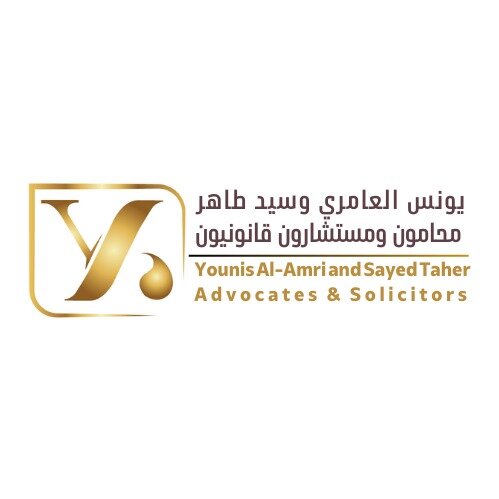Best Conveyancing Lawyers in Muscat
Share your needs with us, get contacted by law firms.
Free. Takes 2 min.
Free Guide to Hiring a Real Estate Lawyer
List of the best lawyers in Muscat, Oman
About Conveyancing Law in Muscat, Oman
Conveyancing is the legal process of transferring ownership of real estate property from one person or entity to another. In Muscat, Oman, conveyancing involves a combination of traditional practices and modern laws designed to protect both buyers and sellers. Typically, conveyancing covers the preparation, verification, and registration of all necessary documents required to legally recognize the ownership transfer. The process is overseen by competent authorities, notably the Ministry of Housing and Urban Planning, and must comply with Oman's legal framework which includes specific requirements for foreign ownership, due diligence, and financial regulations.
Why You May Need a Lawyer
Engaging a lawyer for conveyancing-related matters in Muscat is highly recommended due to the complexities and legal implications of property transactions. Common situations where legal help is necessary include:
- Purchasing or selling residential or commercial property
- Ensuring compliance with Omani laws regarding property ownership, particularly for expatriates or foreign entities
- Verifying the authenticity of title deeds and clearances
- Drafting and reviewing sale-purchase agreements
- Dealing with inheritance or transfer of property due to succession
- Resolving property disputes or encumbrances
- Guiding on taxation, charges, and fees associated with property transactions
Because the legal landscape can be intricate, a lawyer will safeguard your interests, minimize risks, and expedite the conveyancing process.
Local Laws Overview
The conveyancing process in Muscat is governed by a combination of Omani civil law, royal decrees, and ministerial decisions. Key aspects include:
- Foreign Ownership: Non-Omani nationals face restrictions regarding property ownership. Generally, expatriates can only purchase property in designated Integrated Tourism Complexes (ITCs) or under specific circumstances authorized by the government.
- Due Diligence: Comprehensive verification of the seller's authority, the property title, and outstanding liabilities like mortgages or unpaid charges is required before any transaction.
- Contractual Requirements: All agreements must be reviewed and attested by the relevant authorities, ensuring they comply with Omani legal standards.
- Registration: The transfer of property must be officially registered with the Ministry of Housing and Urban Planning to be legally effective.
- Fees and Taxes: Buyers and sellers must pay applicable transfer fees and, in some cases, taxes, as laid out by the Ministry.
- Inheritance and Family Law: Special rules may apply when property is transferred due to death or as part of family arrangements, sometimes invoking Omani Sharia law.
Staying informed about these legal requirements is crucial, as noncompliance may result in loss of ownership rights or legal penalties.
Frequently Asked Questions
What is the typical process for buying property in Muscat?
Generally, the process involves negotiating terms, drafting and signing a sale-purchase agreement, conducting due diligence, paying required fees, and registering the property transfer with the Ministry of Housing and Urban Planning.
Can expatriates freely purchase property in Muscat?
Expatriates can generally only buy property in designated areas known as Integrated Tourism Complexes and require permission from the authorities to purchase outside these areas.
Why is conveyancing important for buyers and sellers?
Conveyancing ensures that the transaction is legally valid, protects the interests of both parties, prevents future disputes, and guarantees the proper transfer of ownership.
How long does the conveyancing process typically take in Muscat?
The duration can vary, but most property transactions are completed within several weeks, provided all documents and clearances are in order.
What documents are needed for property transfer?
Key documents include national identification, proof of ownership/title deed, clearance certificates, sale-purchase agreement, and any government approvals required.
How are disputes regarding property resolved?
Property disputes are handled by the local courts in Muscat, with mediation sometimes facilitated by the Ministry of Housing and Urban Planning before litigation.
Are there taxes on property purchases in Oman?
While Oman does not levy property taxes in the traditional sense, there are registration and transfer fees which must be paid when a property changes hands.
Can I transfer ownership of property to my heirs?
Yes, property can be transferred to heirs, but specific inheritance laws may apply, especially for non-Omani nationals. Legal guidance is advisable to ensure compliance.
What are Integrated Tourism Complexes?
Integrated Tourism Complexes are designated zones where foreigners are permitted to own property. Examples in Muscat include The Wave (Al Mouj) and Muscat Hills.
Is a verbal property agreement valid in Muscat?
No, all property transactions must be formalized in writing and registered with the appropriate authorities to be legally binding.
Additional Resources
If you need further assistance or information, consider reaching out to the following:
- Ministry of Housing and Urban Planning - Oman - The primary government body regulating property transactions.
- Oman Real Estate Association - Offers guidance and resources for property buyers and sellers.
- Omani Bar Association - Can help you find qualified property lawyers in Muscat.
- Royal Oman Police - Directorate of Civil Status - Assists with documentation and verification for property deals.
- Local banks and legal firms - Provide conveyancing and property finance services.
Next Steps
If you require legal assistance with conveyancing in Muscat, begin by gathering all relevant documents related to the property and your identification. Research and contact a lawyer or legal firm experienced in Omani conveyancing law. Schedule an initial consultation to discuss your objectives and ensure your chosen lawyer can guide you through due diligence, contract drafting, government registrations, and any potential disputes. Prompt legal support will help protect your interests and facilitate a smooth property transaction.
Lawzana helps you find the best lawyers and law firms in Muscat through a curated and pre-screened list of qualified legal professionals. Our platform offers rankings and detailed profiles of attorneys and law firms, allowing you to compare based on practice areas, including Conveyancing, experience, and client feedback.
Each profile includes a description of the firm's areas of practice, client reviews, team members and partners, year of establishment, spoken languages, office locations, contact information, social media presence, and any published articles or resources. Most firms on our platform speak English and are experienced in both local and international legal matters.
Get a quote from top-rated law firms in Muscat, Oman — quickly, securely, and without unnecessary hassle.
Disclaimer:
The information provided on this page is for general informational purposes only and does not constitute legal advice. While we strive to ensure the accuracy and relevance of the content, legal information may change over time, and interpretations of the law can vary. You should always consult with a qualified legal professional for advice specific to your situation.
We disclaim all liability for actions taken or not taken based on the content of this page. If you believe any information is incorrect or outdated, please contact us, and we will review and update it where appropriate.

















